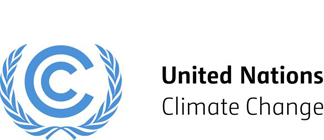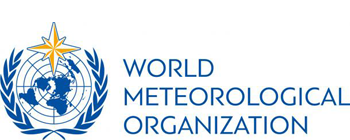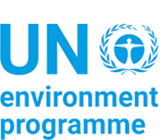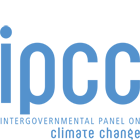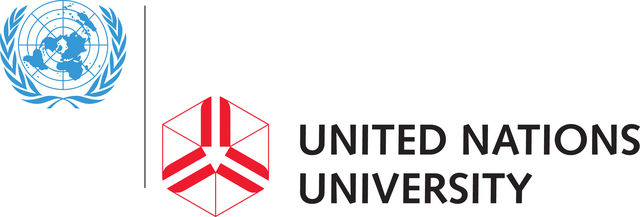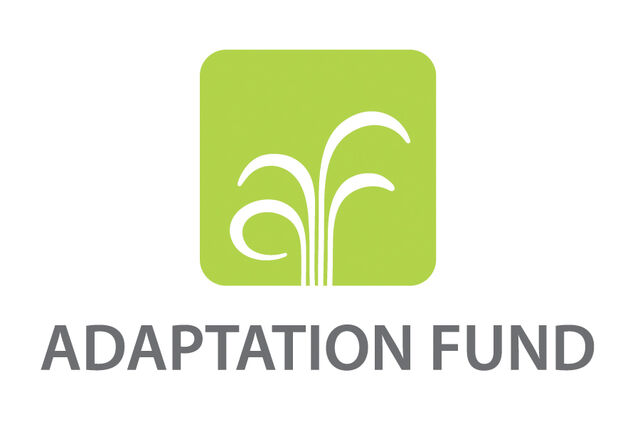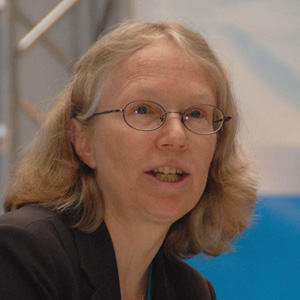The Management Group is the central decision-making body, including nine international organisations (UNFCCC, WMO, UNEP, IPCC, GCF, GEF, UNU, UNESCO, and AF) and co-chairs of the Science Committee and the Policy and Finance Committee.
It provides overall guidance and direction on WASP’s strategy, workplan, budget and activities. It is supported by the WASP Secretariat and advises on all other aspects of WASP’s work.
Chair
Chizuru Aoki
The Global Environment Facility (GEF)

Chizuru heads the GEF Division of Multilateral Environmental Agreements (MEAs) and Funds, and is a member of the GEF’s Leadership Team. She oversees the GEF’s work with six MEAs as their financial mechanisms, through strategy development, programming, governance support, and resource mobilization. She manages a growing team of talented colleagues who work with the GEF family of funds, including the Global Biodiversity Framework Fund (GBFF), the Least Developed Countries Fund (LDCF), the Special Climate Change Fund (SCCF), and the Capacity-building Initiative for Transparency (CBIT) Trust Fund, and supports GEF senior management. Chizuru is also responsible for climate finance, and has engaged in coordinating joint action among the Green Climate Fund, Climate Investment Funds, the Adaptation Fund, and the GEF. Chizuru joined the GEF in 2010, and served as the Climate Change Mitigation Coordinator from 2011 to 2015 and the Lead Environmental Specialist until mid-2024. Prior to joining the GEF, she led one of the largest UN-led environmental interventions in post-conflict Iraq to facilitate ecosystem management and technology transfer with the United Nations Environment Programme (UNEP). Earlier in her career, she managed a program to promote cleaner production. She was a Fulbright Fellow at the Massachusetts Institute of Technology (MIT), receiving her Ph.D in Technology, Management and Policy. Chizuru also holds a BS in Civil Engineering and a MS in Environmental and Water Resources Engineering. She is a citizen of Japan.
Members
Jian Liu
United Nations Environment Programme (UNEP)
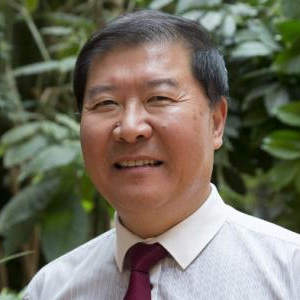
Mr Jian Liu is the Director of the Early Warning and Assessment Division, UN Environment Programme. Jian Liu has over 30 years of professional experience in science and policy, in the specific domains of ecosystems management, agriculture, environment and climate change at national, regional and global levels, in particular in developing countries. Jian holds a doctoral degree in Physical Geography from the Graduate School of Chinese Academy of Sciences, Beijing, China. He was the Director of UN Environment’s International Ecosystem Management Partnership, the first global centre on ecosystem management in the global south, which he established, as the founding director. Prior to this appointment, he served as the Chief of UN Environment Programme’s Climate Change Adaptation Unit and the Deputy Secretary of the Intergovernmental Panel on Climate Change (IPCC). His earlier posts include Deputy Director-General of the Bureau of Resources and Environment, Chinese Academy of Sciences, Director of the Chinese Ecosystem Research Network, and Manager of Environment Program of the International Centre for Integrated Mountain Development. He assumed chairmanship of the World Adaptation Science Programme in July 2018 for a two-year period.
Christopher Hewitt
World Meteorological Organization (WMO)

Prof Chris Hewitt is the Director of Climate Services Branch at the WMO since November 2022. Prior to joining the WMO he worked for the UK Met Office for over 30 years, most recently as the Head of International Climate Services, alongside a part-time position as Professor of Climate Science at the University of Southern Queensland in Australia. Chris’s early career was as a research scientist, developing climate models and undertaking climate research and climate modelling. His next decade built on his scientific research and moved him into project and programme management for large climate-related research projects, including leading and coordinating several key European climate projects. Following World Climate Conference-3 in Geneva in 2009 he took a lead role establishing and developing the UK Met Office’s climate services worldwide, has been central to developing the UN’s Global Framework for Climate Services, and led several international climate service-related Expert Teams for the WMO. He has been developing and delivering climate services with many organisations around the world ensuring pull-through of science to services for societal benefit and guiding science developments to be aligned to societal needs. Prof Hewitt holds a Doctoral degree and a Master’s degree in weather and climate from the University of Reading, and a Bachelor’s degree in Mathematics and Computing from the University of Exeter. He is Honorary Professor of Climate Science, Centre for Applied Climate Science, University of Southern Queensland, Australia, and Honorary Professor of Climate Services, School of Geographical Sciences, University of Bristol, UK.
Youssef Nassef
The United Nations Framework Convention on Climate Change (UNFCCC)
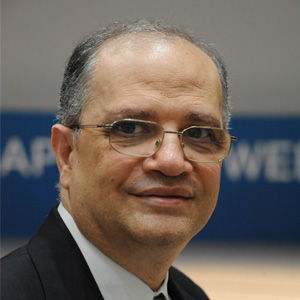
Mr Youssef Nassef is the Director of the Adaptation Programme, United Nations Framework Convention on Climate Change (UNFCCC) Youssef Nassef has led the adaptation workstreams under the United Nations Framework Convention on Climate Change since their inception. He possesses over 30 years of experience in diplomacy and international environmental policy and is a seconded diplomat from the Egyptian Foreign Service. While assuming progressively higher levels of leadership at the UNFCCC, he led UNFCCC support for a number of ongoing initiatives on adaptation. These include the inception and support for NAPAs and NAPs; the Nairobi Work Programme – an international knowledge hub for impacts, vulnerability and adaptation; and the Warsaw International Mechanism for Loss and Damage. He recently created the Resilience Frontiers initiative which applies foresight for attaining post-2030 resilience. He regularly contributes his vision, insights and thought leadership to international conferences on resilience and adaptation to climate change and their nexus with sustainable development, often focusing on developing countries. He assumed chairmanship of the World Adaptation Science Programme in July 2020 for a two-year period. He holds a Doctoral degree in International Technology Policy and Management and a Master’s degree in International Environmental Policy from the Fletcher School of Law and Diplomacy, as well as a Master’s degree in Middle East Studies and a Bachelor’s degree in Computer Science and Physics from the American University in Cairo.
Kevin Horsburgh
The Green Climate Fund (GCF)

Kevin Horsburgh is the Climate Science Lead at the Green Climate Fund (GCF) where he leads a network of experts to strengthen the climate impact of GCF investments and strategic planning. Kevin works closely with the global expert community (the IPCC and the World Meteorological Organization, WMO) to support the development of national climate services in developing countries. As a member of the Scientific Steering Committee of the World Climate Research Programme (WCRP) Regional Information for Society (RIfS) core project, he leads international efforts to develop tools and methodologies that place climate information in the user context to serve the needs of policy-makers, planners, and climate action investors. Kevin’s career has a strong focus on supporting policy and delivering socio-economic impact. Prior to taking up his position with the GCF, he was the Chief Scientist for International Development at the UK’s National Oceanography Centre where he led a portfolio of large-scale, multi-agency projects, harnessing marine science to support sustainable economic development. Between 2010 and 2019 he led the Expert Team on Disaster Risk Reduction for the UNESCO Intergovernmental Oceanographic Commission (IOC) and the World Meteorological Organization (WMO). Kevin has a global reputation in the field of coastal flood hazard research and the implications of climate change on extreme sea levels. He has published over 100 papers on all aspects of extreme sea levels including tides, waves, storm surges and tsunamis. He holds a PhD from the University of Bangor and is a Visiting Professor at the University of East Anglia.
Abdalah Mokssit
The Intergovernmental Panel on Climate Change (IPCC)
Mr Abdalah Mokssit is the Secretary of the IPCC. He has vast experience with the World Meteorological Organization (WMO). He is a former Vice-Chair of IPCC Working Group I, which deals with the physical science basis of climate change, and has served as a member of the WMO commissions apart from serving as the vice president of the World Meteorological Congress. Mr. Mokssit has held a number of leadership positions including Chief of dynamic meteorology service of Morocco, the Head the National Centre for Climate and Meteorological Research (CNCRM) in Morocco, and was also appointed as the Director of the National Meteorological Department of Morocco, a career spanning over 25 years in strategic management. He is an alumnus of the University of Rabat in Morocco where he earned a degree in mathematics. In 1995, he acquired a Telematics and Information Systems degree as well as a meteorology degree from the National School of Meteorology of Toulouse in France.
Shen Xiaomeng
United Nations University (UNU)

Ms Xiaomeng Shen concurrently holds the roles of UNU Vice-Rector in Europe (UNU-ViE) and Director of the UNU Institute for Environment and Human Security (UNU-EHS). Previously, Xiaomeng worked with the then International Bureau of the German Federal Ministry of Education and Research (Bundesministerium für Bildung und Forschung; BMBF) at the Project Management Agency of the German Aerospace Center (Deutsches Zentrum für Luft- und Raumfahrt-Projektträger; DLR-PT), both as Senior Scientific Officer (2011‒2012), with a focus on multilateral science and technology development in Asia and Oceania, and as Deputy Head of the Department for Cooperation with Asia and Oceania; Head of the Cooperation with East Asia and Oceania Unit; and as Coordinator of the European Commission’s EURAXESS Worldwide initiative facilitating the mobility of scientists (from 2013 – 2020). Before joining DLR-PT, Ms Shen worked with UNU-EHS as a Resident Scholar and PhD Researcher (2004‒2008), and thereafter as an Associate Academic Officer (2008‒2010) with a focus on social vulnerability, environmentally induced migration issues and water–related disaster and risk research from cultural perspectives. Ms Shen holds a BA degree from the Beijing Foreign Studies University, a MA degree from the University of Bonn, and a PhD degree from the University of Bonn/UNU-EHS, with a focus on flood risk perception and communication in different cultural contexts.
Anil Mishra
United Nations Educational, Scientific and Cultural Organization (UNESCO)
As Chief of Hydrological Systems, Climate Change and Adaptation of UNESCO, Dr Anil Mishra provides science policy advice underpinned by scientific research findings to deal with climate and water related challenges to UNESCO Member States. Dr. Anil Mishra’s academic, professional, and managerial experiences in the field of hydrology, water resources and environment have spanned over 25 years and included a number of international research studies, initiating and leading thematic groups, coordinating center of excellencies, and supporting decision and policy making in the fields of hydrology, cryosphere, water resources and coupled human-environment systems across the globe. Dr. Mishra has authored, co-authored numerous scientific publications, edited books, scientific reports and policy briefs and convened and co-convened conferences focusing on Climate Change Adaptation, Hydrological Extremes, Cryosphere, and Water Resources Management.
Saliha Dobardzic
The Adaptation Fund (AF)

Saliha Dobardzic is the Lead of the Programming and Innovation Unit at the Adaptation Fund, which processes over half a billion of dollars in funding requests annually and has been leading the development of the Fund’s innovation program since joining the Fund in 2018. Prior to this role, she was a Senior Climate Change Specialist with the Global Environment Facility’s climate change adaptation program, namely the Least Developed Countries Fund and Special Climate Change Fund, working on various strategic, technical, and policy aspects of $1.4 billion program portfolio. Previously, Saliha worked on environmental, international waters, and integrated coastal zone management issues with the World Bank’s MENA region. She has also supported the World Bank’s MENA climate change beam in devising and implementing the first corporate climate change strategy for the region, and the Global Facility for Disaster Risk Reduction in support of mainstreaming climate change considerations in ex-ante disaster risk management. Her experience also includes stints with the UN-Habitat in Nairobi, The Smithsonian Conservation and Research Center, and a number of prominent NGOs, in the private sector in the United States and abroad, as well as the World Bank’s country office in post-conflict Bosnia and Herzegovina, of which she is a national.
Co-chairs of the Science Committee
Cynthia Rosenzweig
NASA and Columbia University
Ms Cynthia Rosenzweig is a Senior Research Scientist at the NASA Goddard Institute for Space Studies, an Adjunct Senior Research Scientist at the Columbia University Earth Institute, and a Professor in the Department of Environmental Science at Barnard College. At NASA GISS, she heads the Climate Impacts Group whose mission is to investigate the interactions of climate (both variability and change) on systems and sectors important to human well-being. Dr. Rosenzweig is co-director of the Urban Climate Change Research Network (UCCRN) and co-editor of the UCCRN Assessment Reports on Climate Change and Cities (ARC3). Dr. Rosenzweig is a co-founder and co-leader of the Agricultural Model Intercomparison and Improvement Project (AgMIP). Dr. Rosenzweig was the Coordinating Lead Author of the Food Security Chapter for the IPCC Special Report on Climate Change and Land and the Coordinating Lead Author on observed climate change impacts for the IPCC Working Group II Fourth Assessment Report.
Anand Patwardhan
University of Maryland

Mr Anand Patwardhan is Professor in the School of Public Policy at the University of Maryland, College Park. He was earlier a Professor at the Shailesh J Mehta School of Management, Indian Institute of Technology-Bombay and a Visiting Professor at the Nicholas School of Environment, Duke University. He served as Executive Director of the Technology Information, Forecasting and Assessment Council (TIFAC), India from 2004-2008. Anand has a BTech (Electrical Engineering) from IIT-Bombay and a MS (Civil Engineering) and PhD (Engineering and Public Policy), both from Carnegie Mellon University. Anand has worked extensively in the area of climate policy at the national and multilateral level, focusing on mitigation and adaptation responses to climate change, and the assessment of vulnerability and adaptation. He has also worked on broader issues of science, technology and innovation policy, including the diffusion and adoption of clean technology. He is particularly interested in questions of vulnerability and resilience and the linkages with sustainable development. He is a member of the Scientific Advisory Panel for the Global Environment Outlook (GEO) 6 and one of the Co-chairs of the Science Committee of the World Adaptation Science Program. He was a coordinating lead author for the Fourth and Fifth Assessment Reports of the Intergovernmental Panel on Climate Change (IPCC), and a member of the Scientific and Technical Advisory Panel (STAP) of the Global Environment Facility (GEF). He was associated with the Global Energy Assessment (GEA) as coordinating lead author and co-chair of the Executive Committee. He is on the editorial board of Climate and Development and Climatic Change Letters and was a founding editor and former editor-in-chief of Current Opinion in Environmental Sustainability.
Johanna Nalau
Griffith University

Ms Johanna Nalau is an award-winning adaptation scientist who thrives on finding clues how humans can better see into the future and make robust decisions today that secure a more resilient future for us all. Her research focuses on understanding climate adaptation decision principles and what role adaptation science does and can play in decision- and policy-making. She is an Australian Research Council DECRA Fellow at Griffith University leading an Australian first project on the development and feasibility of adaptation heuristics. The project aims to uncover such key principles, interrogate their feasibility as decision guides, and provide more robust advice on how to invest and pursue effective and successful adaptation to climate change that enables benefits to the environment, society and security. Dr Nalau is Lead Author in the Intergovernmental Panel on Climate Change (IPCC) 6th Assessment report in Working Group II (Chapter 15 Small Islands), Managing Editor of the Journal of Climate Risk Management, and Co-chair of the Science Committee of the World Adaptation Science Program. She also leads the Adaptation Science Research Theme at Cities Research Institute at Griffith University that focuses on bringing together the university’s key thinkers on adaptation. She was awarded Griffith University Young Outstanding Alumni Award 2019 for the Sciences Group, and the Queensland Young Tall Poppy Science Award 2020. She is passionate about building the capacity of the next generation through enabling leadership and career development and innovation in adaptation science.
Co-chairs of the Policy and Finance Committee
Minpeng Chen
Remin University, China
Ms Minpeng Chen is a full professor in the School of Agricultural Economics and Rural Development (SARD) at Renmin University of China.She has working experiences of adaptation and mitigation in agriculture, and the sustainability of agriculture at Tsinghua University, Yale University, Yamanashi University, IIASA, and Chinese Academy of Agricultural Sciences. She acted as a negotiator on adaptation and loss and damage of Chinese Delegation from 2014 to 2016, as well as a member and co-chair of the Adaptation Committee of UNFCCC from 2015 to 2017. Prof. Chen holds a B.A. in Environmental Economics and obtained her PH.D. from Tsinghua University in Environmental System Analysis.
Bhim Adhikari
International Development Research Centre (IDRC)

Dr. Adhikari is a Senior Program Specialist at Canada's International Development Research Centre (IDRC) and work specifically on environment, climate change and sustainable development issues. Over the past 25 years, Dr. Adhikari has worked with several international organizations and academic institutions, including the United Nations agencies. Prior to IDRC, he worked with the Institute of Water, Environment and Health, United Nations University (UNU), the World Conservation Union (IUCN) and the United Nations Development Program (UNDP). His research appointments include a Research Fellow at the School of Environment and Sustainability, University of Michigan, USA; visiting Research Fellow at the Asian Development Bank Institute (ADBI) in Tokyo, Japan; and an UK Economic and Social Research Council (ESRC) Postdoctoral Fellow. He obtained a PhD in Environmental Economics and Management form the University of York, UK and has researched and written widely on climate change and the economics of environment and natural resources management.
Sivapuram Venkata Rama Krishna Prabhakar
The Institute for Global Environmental Strategies (IGES)

Prabhakar works with the Institute for Global Environmental Strategies (IGES), Japan, as a Principal Policy Researcher. He works on transboundary impacts of climate change, vulnerability assessments, risk insurance, loss and damage, mainstreaming CCA and DRR into development plans and policies, adaptation metrics, adaptive policies and institutions, and capacity needs assessments. He led several research and development projects on climate change adaptation (CCA) and disaster risk reduction (DRR) in South and South-East Asian countries. Prabhakar obtained a PhD in Field Crop Management from Indian Agricultural Research Institute, India, and possesses more than 20 years of experience in participatory research and development with international and national research and development organizations, including IGES, Kyoto University, UNDP, NIDM, CIMMYT-RWC, IARI, and ICRISAT. A strong publication record with several peer-reviewed papers supports his work experience. He has been a Contributing Author to the Fifth and Sixth Assessment Reports of the IPCC Working Group II, Coordinating Lead Author for the UNEP Geo-6 report, Lead Author for the ASEAN State of Climate Report (SOE6), and Lead Author for the HIMAP Report.
Observer
European Commission

